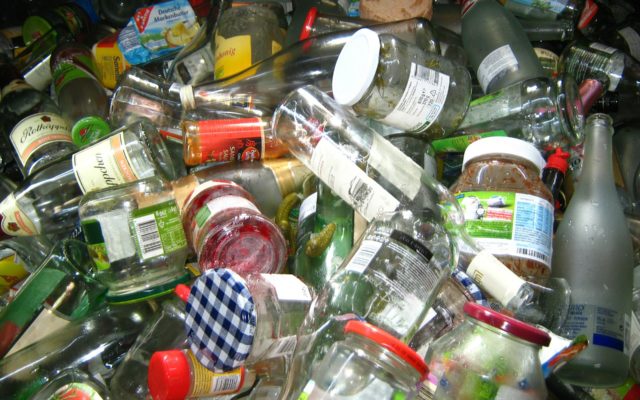I may run the risk of sounding like an old moaner, but I’m running out of patience with, what seems like, the increasing number of people who simply don’t deliver on their brand promise.
A brand promise is sacred
As a brand builder, a “brand promise” is to me sacred. I thought we all realised now that the credibility and therefore the survival of any brand is dependent upon delivering its promise. In the digital economy, of course, this factor is amplified.
No business can afford to raise expectations they are not able to deliver and the ruthless nature of the digital economy means the consequences of failure will be swift and decisive.
This isn’t just a matter concerning commercial brands either. It applies just as meaningfully to personal brands too.
Failure to deliver your brand promise guarantees business failure.
I have lost count of the number of business leaders I have encountered who think a brand promise is derived by finding out what people want and then promising it to them regardless of their ability to deliver.
More than ever today, if you can’t satisfy a genuine need, you shouldn’t – and more importantly won’t – be in business very long.
However, as Hugh Fernley-Whittingstall’s recent TV series vividly demonstrated, there’s a lot of smoke and mirrors being brought into play by both organisations and individuals, when you raise, for example, the question of responsible waste disposal.
In one of his programmes, the celebrity chef and environmental activist confronted a senior council official with irrefutable evidence that the materials they were collecting from households, ostensibly to recycle, were, in fact, being transported to landfill sites in Malaysia.
The response of the official concerned was initially to deny this, then to claim no knowledge, before finally, when he finally realised there was no way out, abdicating responsibility.
Apart from the fact that the council has been charging householders for “recycling” and failing to deliver, this, to me, represents a criminal dereliction of duty as a citizen and an official.
It’s not just government officials who are guilty of abandoning their responsibilities, but until everyone “mans-up” and owns their promises we won’t make much progress.
The broken promises of the recycling sector
I’ve arrived at the belief that the conversation around sustainable living is built on lies, half-truths, distortions, miss-information, misunderstanding and opaqueness the scale of which is difficult to comprehend. So, let’s get a few things straight.
- If you want your household re-cycling recycled at all, you have to sort it yourself. This means knowing what your local contractor can and can’t recycle. All re-cycling companies are not equal. If you don’t they will often use the slightest “contamination” by stuff they can’t handle an excuse for declaring the entire shipment un-recyclable and condemning it to landfill.
- The sustainability targets agreed by ours and other governments are total bollocks. It isn’t going to happen. In fact, I can’t see when it is likely to happen unless people start being honest.
- We still can’t recycle much of the stuff we put in our recycling bins and sorting the stuff out isn’t really practical or even attempted much of the time.
- Even what’s produced from that we do “re-cycle” isn’t useable a lot of the time.
All this adds up to a pretty comprehensive failure of the sector to deliver its promise. Imagine my delight therefore to discover an innovation that renders all this talk – and especially the people involved – redundant.
The innovation that will change everyone’s lives. – now that’s a brand promise!
Last week I attended an event staged by Coventry and Warwickshire Champions where Nik Spencer, inventor and CEO of Mission HERU revealed his invention that turns all forms of household waste into energy on the spot.
Nik estimates that within five years every household could have an affordable kitchen appliance, that will transform any and, pretty well, all of our trash into energy that heats and powers our homes.
I’m not sure which delights me more, the substantial contribution this innovation will make to sustainability or the thought that all the liars and cheats who’ve been wasting our time and money on Scotch mist over recent years will be out of work.
When disruption arrives from an unexpected direction.
However, this news also re-visits one of my current themes, namely that of disruption from adjacent sectors.
Those of you who know me will be aware of my on-going campaign to raise awareness of the realities of disruption and in particular the fact that it frequently arrives from an unexpected direction. Usually an adjacent sector. Consequently, its victims rarely see it coming until it’s too late.
So, what sectors will Nik’s invention impact upon? Well, apart from the energy sector – electricity, oil and gas suppliers – there are refuse collectors, the manufacturers of refuse trucks and equipment, waste-disposal manufacturers and makers of heating boilers, recyclers and the makers of their paraphernalia, council employees (I hope you are registering the reductions this will facilitate in council taxes … if the politicians are honest that is!) and the shipping lines that are currently moving our waste around the world in vast volumes, to name just a few.
Obviously, the degree to which HERU impacts on the sectors I have mentioned varies widely. The more diversified your proposition is the less you’ll feel it, but there are undoubtedly companies out there whose entire reason for being will cease to be.
Responding to disruption from adjacent sectors.
The question all these businesses have to ask is “how will I replace my revenue from recycling and waste disposal?” In fact, they should have been asking this question of themselves for years already, as should every business in every sector because, as in this case, once the challenge is revealed you only have a very few years to completely rebuild your business.
This is a typical timescale – 5 years. Barely long enough for transformation, even if everything goes smoothly – which, of course, we know it doesn’t for 70-80% of organisations.
The old approach to transformation doesn’t work.
One thing is for sure. It isn’t going to work if these businesses tackle their transformation as others have been doing for the past few years. As I have said, most transformations fail and the businesses concerned usually fold as a result.
So, what’s the answer? Well, firstly you have to avoid the common mistakes. Transformation isn’t, for instance, an IT project. There are legions of failed businesses that stand testament to this fact. You should not invent your technical infrastructure and then work out what to do with it.
The reality is the reverse – you work out what you want to do and then build the infrastructure to deliver it. This is transformation #101.
Secondly, you need to be quite clear what you are trying to do. The most common observation by transformation consultant is that on first meeting, businesses wanting to transform don’t know why, and worse still, don’t know what they are trying to achieve.
Transformation requires you to focus on your brand promise.
These two factors are examples of the absence of focus, which is also manifested in many other traits of failed transformations. However, they are all avoided if transformation is approached correctly and that means starting by defining your brand.
Smart business leaders have appreciated for years that brands are the driving force of successful organisations. There’s a whole lot more to them than the relationship with customers, but their primary role is to focus the organisation.
While success and failure are primarily defined by efficiency in its broadest sense, the focus that a strong brand brings to an organisation creates the efficiency every business needs. You may tinker with other contributors to efficiency, but brand is the big daddy. Get that right and everything else becomes possible.
There are no excuses, but if you aren’t sure where to start I’m always happy to advise on Brand-Led Business Transformation, so get in touch and start defending your business against disruption.
Article by channel:
Everything you need to know about Digital Transformation
The best articles, news and events direct to your inbox







